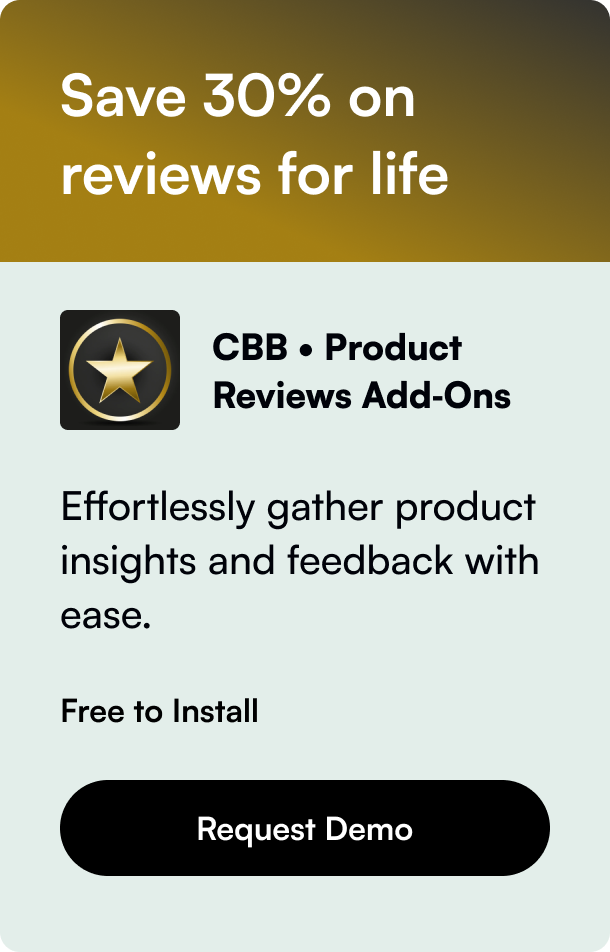Table of Contents
- Introduction
- Why Shopify Reigns Supreme
- The Flipside: Considerations Before Committing
- Conclusion: Balancing Perfection with Practicality
- FAQ Section
Introduction
Are you considering launching an online store, or perhaps you're looking to switch platforms for an existing one? The choice of where to house your digital marketplace can feel overwhelming. From driving sales to managing inventory, the platform you choose has significant implications for the operation and success of your business. In comes Shopify – potentially your holy grail of ecommerce solutions. The question "Is Shopify the best ecommerce platform?" deserves a considered response.
Let’s delve into Shopify's offerings, the scope of this platform, and how it might serve your ecommerce aspirations. Discover the particulars that many successful online stores praise and scrutinize the elements that might be deal-breakers for some.
Why Shopify Reigns Supreme
Shopify has emerged as a preferred choice for many digital entrepreneurs, from small startups to large-scale operations. It's popularity is not unwarranted; let us explore the reasons why Shopify is highly favored in the ecommerce space.
Simplicity and User-Friendliness
Shopify prides itself on being accessible even to the most technologically timid users. Its intuitive interface allows new users to set up their stores quickly, with minimal fuss. The availability of a host of themes and the drag-and-drop website builder simplifies the process of crafting a professional online presence.
The platform also boasts a seamless integration with various payment gateways, cementing its reputation for being uncomplicated and versatile. Small and medium-sized businesses find this particularly alluring, as it lets them focus more on their business objectives than on technical website challenges.
Robustness and Scalability
As your business grows, Shopify's sturdy framework is ready to support your expanding needs. With its flexible plans, it can cater to increased traffic and sales without compromising performance. Its scalability is one of the key attributes that make it a smart choice for businesses planning to grow.
Furthermore, hosting and security are included within Shopify's services. This lifts the burden of managing these crucial yet often complex aspects of running an online store, offering peace of mind to business owners.
Diverse App Market and Integrations
Shopify stands out due to its plentiful selection of apps in its App Market, allowing businesses to extend the functionality of their stores. Customization options are nearly limitless, enabling a store to evolve alongside the changing tides of the ecommerce industry.
Moreover, Shopify’s integrations with various platforms – social media, marketplaces, and tools – streamline the process of managing an online presence across multiple channels.
Comprehensive Support and Community
Good platform support can be crucial to the smooth running of an online store. Shopify’s customer support is commendable; you can consistently rely on their team for assistance. The Shopify community offers a forum for users to engage, discuss, and find solutions, demonstrating the strong support system in place.
Financial Considerations
While Shopify might not be the cheapest option available, its transparency with pricing means no hidden costs surprise you. The investment in Shopify often translates into business growth, thus providing value for money.
The Flipside: Considerations Before Committing
Despite its many applauds, no single solution suits everyone, and Shopify is no exception. Here are some points to ponder prior to jumping on the Shopify bandwagon:
- Costs can escalate when adding apps and premium themes.
- Customization has limits without coding knowledge.
- Some complain about the content management features not being as rich as specialized CMS platforms.
- Transaction fees apply if not using Shopify Payments, potentially adding to overheads.
Conclusion: Balancing Perfection with Practicality
Shopify has carved its name into the ecommerce stone for good reason. The ease of use, scalability, and stellar support make it an alluring choice for many. However, it’s vital to weigh the pros and cons tailored to your business needs before making the leap. Remember, the best platform is the one that aligns with your operations, target audience, and growth trajectory.
Each decision point—cost, functionality, support, and beyond—will guide you toward the ecommerce solution that fits your blueprint for digital success.
FAQ Section
Is Shopify suitable for international sales? Absolutely, Shopify supports multi-language sites and various currencies, making it equipped for international sales.
Can Shopify handle high-traffic events like flash sales? Shopify is designed to be robust and can manage high volumes of traffic and transactions, making it ideal for flash sales and other significant events.
Are there limitations to the customization on Shopify? While Shopify offers a range of customization through themes and apps, extensive customization might require knowledge in Liquid, Shopify’s templating language.
Does Shopify offer any SEO advantages? Shopify comes with built-in SEO features such as customizable headlines, titles, and meta tags, which can aid in improving your store's visibility in search engines.
How does Shopify support my marketing efforts? Shopify provides a suite of marketing tools and integrations with platforms like Google Ads and Facebook, offering a well-rounded approach to digital marketing.
Ultimately, whether Shopify is the best ecommerce platform for you depends on the specifics of your business plan and digital commerce vision. Choose wisely, and you’ll have a powerhouse by your side that can turn your ecommerce dreams into a resounding reality.









